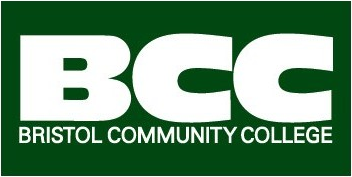Course name
Introduction to Astrobiology (AST 192)
- Inspark Offering: HabWorlds
- Discipline: Astronomy
- Teaching Mode: Fully online
- Number of Students: Classes of 25
What He Needed
Using more traditional pedagogy, Martin was spending all his time delivering content and not enough time focusing on what he loves: supporting students and their current and future success. His class population includes many first-generation college students, and they’re often nervous about taking science courses — especially astronomy, which is often wholly new material and quite daunting.
Since Professor Martin’s course could be the first, and potentially only, science his students ever take at the collegiate level, he wanted a way to expose students to the process of doing science in an engaging and learner-friendly way. The course could be entirely new and daunting content, his goal was to give his students a solid foundation in science, the confidence to continue their studies, and the soft skills they’ll need to succeed in their future careers.
His Solution
Martin introduced Inspark’s HabWorlds course as the core of his fully-online, 4-credit introductory astronomy class, supplementing lessons with additional readings and discussion board topics. The Inspark Teaching Network provides all the support he needs to relieve the pressure of figuring out how the modules work, so he can spend his time digging in to see where students are doing well and where they’re struggling, giving him the ability to provide the appropriate extra help when students need it.
“The quality of the [HabWorlds] content is so high, there’s no way I could ever hope to achieve it on my own.”
HabWorlds teaches students the process of scientific discovery as they apply acquired astronomy knowledge in a course-long project. They’re given a virtual star field, telescope, and other real-world astronomy instruments to learn how to scan the skies, identify stars, and seek habitable worlds in the universe.
“They get exposed to the actual process of doing science, and that’s something that’s relatively rare — especially in a way that is very natural and engaging. This is real-life science they’re doing.”
The course is set up in a developmental arch, gamifying their learning so that students get rewards (new skills and tools in the project) for achieving academic standards and demonstrating understanding and mastery of the content. Students see how each new lesson builds upon the last, giving them a sense of achieving tangible skills, which keeps them motivated throughout the course.
The Results
“It’s very engaging, informative, inspiring, and exciting. The students love the content and ideas, and I do, too. They’re getting a lot out of the course.”
HabWorlds has shifted Martin’s role as the instructor in a positive way. Today, he spends the majority of his time truly supporting individual success: helping students unpack what they’re learning, assisting with comprehension issues, and engaging in discussions about what the topics actually mean, both for their lives and the course as a whole.
Students are enjoying the more active and skills-based learning. Instead of simply memorizing facts and figures, they cultivate critical thinking skills and demonstrate an understanding of the “why” behind scientific processes. HabWorlds has successfully provided a way of engaging them to support learning beyond the classroom, and they don’t have to worry about recording lectures or missing something during in-person sessions.
With Martin’s ongoing, focused support and HabWorlds’s turnkey curriculum, students in his class learn to connect what they’re doing in modules and the course-long project with what they read in the papers, instilling in them genuine interest in a difficult, complex field.

